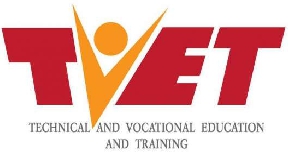General News of Saturday, 27 April 2019
Source: ghananewsagency.org
Ghana TVET project voucher launched in Western Region
The Ghana Technical and Vocational Education and Training (TVET) Voucher Project (GTVP), aimed at providing competency-based training for registered master craft persons, workers and apprentices in the informal sector, has been launched in Takoradi.
The trainees would be provided with modern technology and skills to help improve their trade areas.
The GTVP, which began in 2017, is a project under Ghana-German Financial Development Cooperation, funded by the KfW German Development Bank, and implemented by the Council for Technical and Vocational Education and Training (COTVET).
It is also being supported by PLANCO, an international consulting firm, dubbed: "Skills: My Future".
Mr Kwabena Okyere Darko-Mensah, the Western Regional Minister, said the job landscape had changed such that one must be encouraged to create his or her own job after school, unlike in the past where jobs were easily accessible, stressing that the world now belonged to people in the skills bracket.
He pointed out that the New Patriotic Party philosophy of property owning democracy revolved around three pillars: freedom, excellent health system, education and training, explaining that skills training was the key to unlocking opportunities and prosperity for all.
Mr Darko-Mensah hinted that his team had made a commitment to pursue anything business, entrepreneurial and skills development as they fitted directly into the enterprise agenda of the Western Region.
He said the GVTP initiative by the Government epitomized its commitment to making education, especially TVET, attractive and accessible to all Ghanaians.
He said the Government strongly believed that TVET was going to be the driving force of the industrial and economic development.
Mr Emmanuel Bekoe, the Fund Manager for COTVET Ghana, urged the Western Region to embrace the initiative as this was the free "form of education for the informal sector".
Mr Collins Armah, Team Leader for COTVET Ghana, disclosed that the Project had been in existence for the past three years and had trained about 5000 people of which 60 per cent were women.
It would end by 2021 and about 16,000 people are targeted to be trained.
Mr Armah assured Ghanaians that with the help of development partners it would be extended beyond 2021 with an increased target of trainees.
"All that China is doing is mainly vocational and technical training, which starts right from the basic level so if we want to develop as a country we need to follow their footsteps and that is exactly what this project is about," he said.
Mr Armah said the COTVET Certificate was recognized and could be used to secure employment in many sectors.
Giving a background to the project, he said it started three years ago in the Greater Accra, Volta, Northern and Ashanti regions but had now spread to the Eastern, Western and Central regions.
GTVP provides demand-driven training vouchers to COTVET-registered master craft persons, their apprentices and workers.
The vouchers are used to fund competency-based training courses in COTVET-accredited institutions and the assessment and certification of National Proficiency Levels I and II, which would enable them to work outside the shores of Ghana.
The trade areas covered by the programme are Cosmetology, Consumer Electronics, Automotive repair, Building Construction (Welding), and Garment making.
Plumbing, Furniture making, Electrical Installation, Block Laying, Floor Tiling, Catering and Hospitality would be introduced later.
Entertainment










